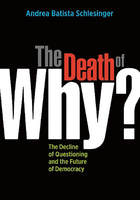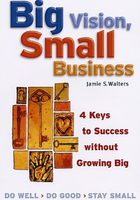The Bloodied Sheep
Begin the morning by saying to thyself, I shall meet the busybody, the
ungrateful, arrogant, deceitful, envious, unsocial. All these things
happen to them by reason of their ignorance of what is good and evil.
—Marcus Aurelius Antonius
A society of sheep must in time beget a government of wolves.
—Bertrand de Jouvenal
In the summer of 1951, the lamb fell into a job at a small, floundering branch office of a consumer finance company. Within months, the manager departed and his lot fell to the lamb. Protected by remoteness, anonymity, and insignificance, four lambs, whose average age was twenty, trashed the company manual, ignored commandments, and did things as common sense, conditions, and ingenuity combined to suggest.Within two years, business tripled and the office was leading the company in growth, profit, and quality of business.Anonymity was gone and the blind fists of corporate power and orthodoxy began pounding for conformity. How much better the lambs could do if they conformed to central mandates. Even if they could be trusted with freedom to use their ingenuity, others could not. Exceptions could not be made without risking anarchy.
It was too much for a lamb already dreaming of greener pastures. He transferred to another division and slipped away to open a new office in a small, remote Oregon town, hoping that the pressure to conform was an aberration of former division management, not the true nature of the company. There, the pattern repeated itself. Using the same iconoclastic concepts and ideas, the new office was in the black by the third month, with business and profit increasing rapidly. It soon attracted the iron fist of corporate power and the itchy fingers of centralized bureaucracy. Confrontation with superiors grew frequent and intense.
In little more than a year came an “invitation” to visit the head office, where a transfer, skillfully veiled as a promotion, was arranged, ostensibly to handle branch development company-wide. Three weeks later, on the twelfth floor of a gray, granite headquarters in a maelstrom of smog, traffic, and noise in the heart of Los Angeles, I was taken in tow by a charming man, Dick Simmons, an experienced employee in the marketing department, who was to familiarize me with the work. He was extremely literate. Exceptional intelligence and perception lay behind the literacy, and more than a little cynicism. He detested his job.We swiftly became friends.
Several weeks into the work, a summons came to step into the office of Brown, head of the marketing division, a diminutive, rotund fellow, pleasant enough, though pompous with subordinates and unctuous with superiors.Visitors, he told me solemnly, were occasionally confused about location of the senior executives' offices. I was to attend to the matter and keep him informed.
Back in the office shared with Simmons, I asked for the name of sign companies with whom we customarily dealt.
“How do you intend to handle it?” he asked.
“Call a sign company, see what's available in brass, either freestanding or wall-hung, and have it installed,” I replied. His hands went up in mock horror as he came down hard on every other word. “That will never do.You've been assigned a project. It will already be in the department project control log, flagged as important because it involves senior executives. Important projects always take time.”
“Yeah, sure, Dick, funny, funny,” I replied, reaching for the telephone. His hand closed over mine.
“Am I not responsible for your indoctrination? Trust me. This will be fun, and you'll learn something as well.” At lunch he explained.
“What you don't understand is that in companies like this, procedure is more important than purpose, and method more important than results.” He carefully went over a list of officers, deciding on those who would be most likely to have an opinion on signs, and how to make an innocuous approach.
During the weeks to follow I received a fascinating education about both human nature and the nature of organizations. Bored to death and disillusioned with the company, one of the most intelligent people I had ever met casually extracted opinions about “the sign problem” from various officers, each opinion different and duly admired by him. I listened as he told Brown about “the sign problem” and aroused concern that no one “upstairs” be offended by what we did. He obtained diverse sketches, samples, and prices from suppliers, exposing them to officers in idle moments to elicit conflicting opinion and avoid decision. Brown's inquiries were skillfully turned aside with allusions to things “going well,” or “about wrapped up,” then digression to other subjects.
Fascinated, I watched as he manipulated situation after situation. He suggested a story for the company magazine about executive secretaries, causing a muddle of childish maneuvers by middle managers over who would be identified as “executive” by inclusion of their secretary and who insulted by exclusion. He organized a move to new quarters and induced months of bickering over allocation of space, layouts, furnishings, and windows. Not once was a lie told or a person misled. Simmons had more integrity and skill than that. He simply left murky minds unclarified and petty minds free to fuss.
Caught up in a bureaucratic command-and-control organization that would not allow him to use his ability constructively on substantive matters, he skillfully honed it on complicating trivial matters to no end at all other than his own amusement. The difference between Simmons and millions of others trapped in mechanistic, industrial age organizations is that he chose to be undeceived, either by self or others. He refused to demean his talent by not using it to the maximum, even for trivial ends.
He soon left the company and the world of business, quietly determined there must be a place where he could use his ability constructively among kindred spirits. I hope he found it.
I have never forgotten Simmons. Countless times over the years I have asked diverse groups of people to reflect very carefully on their work within organizations and to make a simple balance sheet. How much time, energy, and ingenuity did they spend obeying senseless rules and procedures that had little to do with the results they were expected to achieve? How much did they devote to circumventing those rules and procedures in order to do something productive with the remainder? How much was wasted interpreting such rules and enforcing them on others? How much time and talent did they simply withhold due to frustration and futility? It's a rare person who arrives at a sum less than 50 percent. Eighty is not uncommon.
A few years ago, I was asked to spend three days in no-holds-barred discussion of chaordic concepts in a major U.S. Army command. The first day was with the Audie Murphy Club, the best and brightest noncommissioned officers on the lowest rungs of the hierarchy.The second day was with senior commissioned officers of the command, and the third with sergeant majors; grizzled veterans on the top rung of the noncommissioned ladder charged with the day-to-day operation of the Army.
The young noncoms were apprehensive when asked to make the assessment of wasted time, energy, and ingenuity. It took considerable reassurance before they would accept that they could safely speak of such things. After considerable discussion and some thought, the estimates emerged.They ranged from 45 to 85 percent of time spent unproductively.
The senior commissioned officers were more solemn and deliberate but gradually got into the spirit of it. Their estimates were lower—ranging from 20 to 40 percent. Not surprising, since people with power to write and enforce rules rarely spend much time following them.The third day was the surprise.
The sergeant majors didn't take long to make the assessment. Some were as low as 5 percent, none above 20. I pointed out the discrepancy between the three groups and asked for an explanation. The toughest-looking cookie in the crowd looked through me as though I was the dumbest recruit to crawl from under a rock and roared,
“Hell, that's easy. We been gittin' around dumb rules all our lives, and we damned well ought to know how to do it without wastin' time. If a new rule comes down, it don't take ten minutes to figure out how to look good and still do things our way. The young pups haven't learnt how yet, and the brass is too busy tryin' to get promoted to care.” Raucous laughter.
“Well, how do you do it? I'd like to know. Can I get a copy of the sergeant major's manual that explains it?” More laughter.
“There ain't no manual. Any sergeant major calls me and needs something, he gets it, no questions asked or answered. I need something and call another sergeant major, I get it. Same deal.”
“OK,but you can't con a country boy.There's more to it than that. How can I find out what really happens?” Laughter again.
“No problem. Go to the sergeant major war college. Don't worry too much about classes. Take plenty of beer money and don't expect much sleep. If the bunch gets to like you and you're not too dumb you'll learn plenty.”
“Sounds like there are two armies. The official Army and the real one.The explicit and the implicit organization. What might happen if the two ever came together?”
“Hell, I don't know about that explicit, implicit crap but I do know the Army. It's been this way since war was a pup.Ain't none of us gonna live long enough to see it change.” One look around the room is enough to convince me that knowing more about the real army will have to wait. No way could I hold my own on a beer bust with these boys.
Unfortunately, what the sergeant majors intuitively knew, what Simmons was trying to teach, the lamb was not then ready to learn. It took him decades to synthesize the lesson. In industrial age organizations, purpose slowly erodes into process. Procedure takes precedence over product. The doing of the doing is why nothing gets done. Simmons had elevated the doing of the doing to an art form until virtually nothing got done.
At twenty-five, for all his rebellious, unorthodox ways, the lamb was too naive, too well-indoctrinated, too enamored of rising in the company to see the realities. He thought he saw a bitter, brilliant man damaging a decent company. What he did not see was a mechanistic, command-and-control company demeaning and discouraging a capable man.
The lamb stepped eagerly into the jaws of the beast. He wanted to believe in the company. He wanted it to be different. He wanted to make it better. It's an old, old story. The lamb was determined to change the company; the company was determined to corral the lamb. It was no contest. Within the year, a badly mauled lamb was out the door, much wiser in the ways of hierarchal, command-and-control organizations, and the people who hold power within them.
Old Monkey Mind and I have long puzzled where mechanistic organizational concepts originated, and why we are so blind to their reality. Their genesis reaches back to Aristotle, Plato, and even beyond. However, it was primarily Newtonian science and Cartesian philosophy that fathered those concepts, giving rise to the machine metaphor. That metaphor has since dominated our thinking, the nature of our organizations, and the structure of industrial society to a degree few fully realize. It declared that the universe and everything in it, whether physical, biological, or social, could only be understood as clock-like mechanisms composed of separable parts acting on one another with precise, linear laws of cause and effect. It asserted that if we could dissect and understand all the parts and the laws governing them, we could reconstruct the world and all therein into predictable, controllable mechanisms, presumably much more to our liking than the world had ever been.
For nearly three centuries we have worked diligently to structure society in accordance with that concept, believing that with ever more reductionist scientific knowledge, ever more specialization, ever more technology, ever more efficiency, ever more linear education, ever more rules and regulations, ever more hierarchal command and control, we could learn to engineer organizations in which we could pull a lever at one place, get a precise result at another, and know with certainty which lever to pull or for which result. Never mind that human beings must be made to behave as cogs and wheels in the process.
For more than two centuries, we have been engineering those institutions and pulling the levers. Rarely, very rarely, have we gotten the expected results. What we have gotten is all too obvious: obscene maldistribution of wealth and power, a crumbling ecosphere, and collapsing societies.
Just as the machine metaphor was the father of today's organizational concepts, the industrial age was the mother. Together, they dominated the evolution of all institutions. The unique processes of the age of handcrafting were abandoned in favor of mechanistic, command-and-control organizations. To produce huge quantities of uniform goods, services, knowledge, and people, those organizations amassed resources, centralized authority, routinized practices, and enforced conformity. This created a class of managers expert at reducing variability and diversity to uniform, repetitive, assembly-line processes endlessly repeated with ever-increasing efficiency. Thus, the industrial age became the age of managers.
It also became the age of the physical scientist, whose primary function was to reduce holistic ways of understanding to specialized knowledge through uniform, repetitive, laboratory processes endlessly repeated with ever-increasing precision. In time, universities obtained an oligopoly on accreditation and production of both classes.
It has led to one of those immense paradoxes of which the universe is so infinitely capable, one that is having profound societal effect. The highest levels of management in all organizations, commercial, political, social, and educational, are now formed of an interchangeable, cognitive elite with immense self-interest in preserving existing forms of organization and the ever-increasing concentration of power and wealth that they inevitably bring.
At the same time, those organizations are spawning an incredible array of scientific and technological innovation; immense engines of change that create enormous diversity and complexity in the way people live, work, and play. This, in turn, demands radically different concepts of organization that can more equitably distribute power and wealth, unshackle human ingenuity, and restore harmony between societal organizations, the human spirit, and the ecosphere.
The essential thing to remember is not that we became a world of expert managers and specialists, but that the nature of our expertise became the creation and management of uniformity and efficiency, while the need has become the understanding and coordination of variability and complexity, the very process of change itself.
It is not complicated. The nature of our organizations, management, and scientific expertise is not only increasingly irrelevant to our enormous economic, societal, and environmental problems, it is a primary cause of them.
Loss of the job was a crushing experience. Ferol and I were friendless in a massive city we hated, breathing air so polluted it seared the eye and blotted out everything beyond a few blocks— smog so thick we could see the bluish haze within our apartment. We had money for a month's groceries, no savings, considerable debt, two toddlers, and another baby about to be born. Pride prevented mentioning our plight to relatives, let alone seeking their help. We had been raised to believe that shame was the companion of need, and pride the companion of self-sufficiency. We had worked for clothes and spending money since we were ten, thought nothing of it, in fact, derived our sense of self-worth from doing so. “Root, hog, or die” had set the tenor of our days.
One event is seared in memory. The feeling returns as sharp as a throbbing tooth. A few days after the severance, we were desperate to know what to do.We had no idea when I might find a job or receive another paycheck. We agreed I must apply for unemployment. The next morning, deeply depressed, I drove through massive traffic and blinding smog to the nearest unemployment office. A line of people extended out the door and down the sidewalk.
Sitting in the car across the street, looking carefully at the faces of the people, I could not make myself open the door. One moment, I imagined myself in the line, the next, explaining to a concerned wife why I had not done so. I told myself that refusal to get out of the car was ridiculous, just false pride. I was entitled to the compensation. The feelings would probably vanish as soon as the application was filled out and I'd realize how silly such feeling were. But I could not get out of the car. Something deep inside said, “No! Take me there and I will die.” Sick at heart, I drove slowly home to explain to a bewildered, pregnant young mother of two that entering that line was something I could not do. I did not know why then. Still don't.
The next morning I began a frantic search for work; any kind, anywhere, doing anything. Within the month, a miserable job at pitiful pay appeared. I grabbed it, giving us momentary breathing room. We were determined never again to be in such a vulnerable position. We swore that, with the possible exception of a home mortgage, we would never again have more debt than cash in the bank.Within a month, I took two more miserable jobs. None of the three required regular hours or confinement. The sprawling city was an advantage. I could work three jobs without any employer knowing of the others. It is amusing now to remember how we shredded every credit card in our possession, swearing never to have another. And for the next fourteen years, we did not. Be careful! Vengeful spirits have an affinity for oaths.
With Herculean effort, we paid our debts in a year and a half and put a small sum in the bank. I abandoned two jobs to concentrate on the best of the three, a tiny investment company in serious trouble due to corrupt management, since departed.The sole owner, a wealthy, thin-lipped, dour man, refused much in the way of salary but gave solemn assurance of freedom to use unorthodox methods and a substantial share of the profits if success followed. He kept the first promise.
Five years later, the lamb sat down with the owner to divide a handsome profit from the sale of a successful company, only to come face-to-face with naked greed and an astonishing display of accounting and contractual legerdemain. Although worth millions from a variety of businesses, he claimed that the profit he had promised to share must include years of losses that preceded my arrival.Therefore, there was no profit to share, even though the company fetched a huge premium when sold. He was adamant. If the lamb didn't like it, he could sue.
It was a severe dilemma. Throughout his years in the financial services business, the lamb had strong aversion to litigation, taking great pride in never repossessing mortgaged property without the customer's consent and never suing a customer to collect a debt or enforce a contract. Everything had been accomplished by collaboration and persuasion. It was a defining moment.
It was no longer a lamb, but no less a bloodied sheep, that looked deeply into those dead, expressionless eyes, drew a deep breath, and with a tinge of pity and a mountain of contempt softly said, “Keep the money.You apparently need it more than I do!”
The dead eyes did not blink.The thin lips never moved.The expressionless face was frozen. The beast, avarice, had devoured him completely.The sheep turned and walked out the door.They never saw or heard from one another again.
The sheep wandered north to Seattle to supervise the entry of a financial conglomerate into the consumer lending business. Don't hold your breath.Yes, it happened again: conflict between iconoclastic, innovative concepts of organization and management, and the iron fists of corporate power and orthodoxy, and with the same, painful result. Just another hunk of unemployed mutton bruised and bleeding on the sidewalk.
After sixteen years of unorthodox management and unblemished results, the sheep, by the standards of industrial age command-and-control organizations, was a failure. In truth, those with whom the sheep battled and lost were not without merit. The words they used to inflict so many wounds were not without some justification: “stubborn, opinionated, unorthodox, rebellious.” The power of those words to wound came from elements of truth each contained; their weakness from the fact that none contained the whole of it. The sheep's unorthodox ways and inability to swallow whole and fully practice the gospel of industrial age management were seen as invitations to battle.
It would be a comfort now to claim that the sheep never accepted or practiced industrial age beliefs and practices, but it would be a lie. He did so often and well. But that was also part of the learning, for the aftermath inevitably brought distress and shame for the damage inflicted on self and others.
During those years the sheep was torn apart by internal conflict. He was filled with desire for acceptance in the world as he found it, for his piece of the American dream. He wanted to believe and belong; to rise to a place among the powerful, rich, and famous. But he was also filled with a multitude of things he would not do to get there. Side by side with a compelling desire to excel in the world as he found it was equal desire to behave in accordance with the world as he wished it to be. Shoulder to shoulder with desire for power, fame, and fortune was longing for solitude and contemplation. Hand in hand with the urge to excitement and action was the call to contemplation and beauty.
The sheep did not fully realize how thoroughly he was being torn apart by a society that was methodically pulling itself apart, or how rapidly it was pulling apart the biosphere. Nor did he see clearly who was doing the pulling, or why. But he felt the pain and saw it everywhere around him.And he was slowly learning.
Throughout the sixteen years of successful business failure, the sheep continued to read avariciously—poetry, philosophy, biography, history, biology, economics, mythology—anything and everything that satisfied his curiosity about connectedness and relationship. He mastered nothing, nor did he wish to, but new ways of seeing old things began to emerge and new patterns slowly revealed themselves. The preoccupation with organizations and the people who hold power within them became an obsession. It was then, in the 1960s, out of the maelstrom of experience, study, and stress, that the three questions emerged, softly at first, then more demanding and compelling.
Why are organizations, everywhere, whether political, commercial,
or social, increasingly unable to manage their affairs?
Why are individuals, everywhere, increasingly in conflict with
and alienated from the organizations of which they are part?
Why are society and the biosphere increasingly in disarray?
The vague shape of some answers had begun to form, but the sheep had no idea what to do with them. Sheared, bloodied, and once again unemployed, he lost heart and wandered into a slough of despond.














